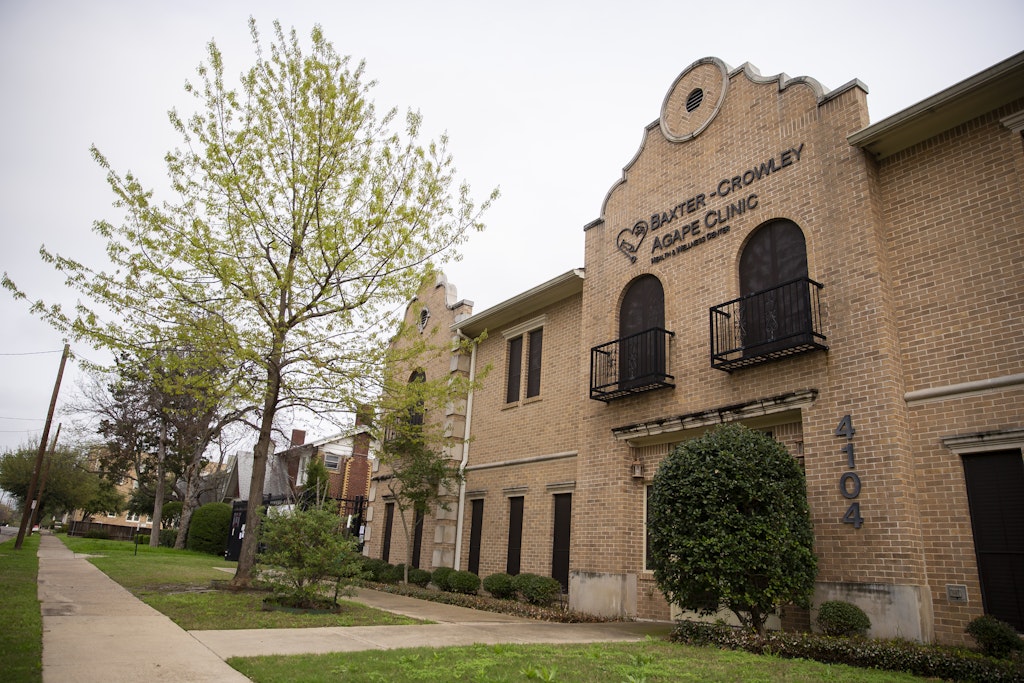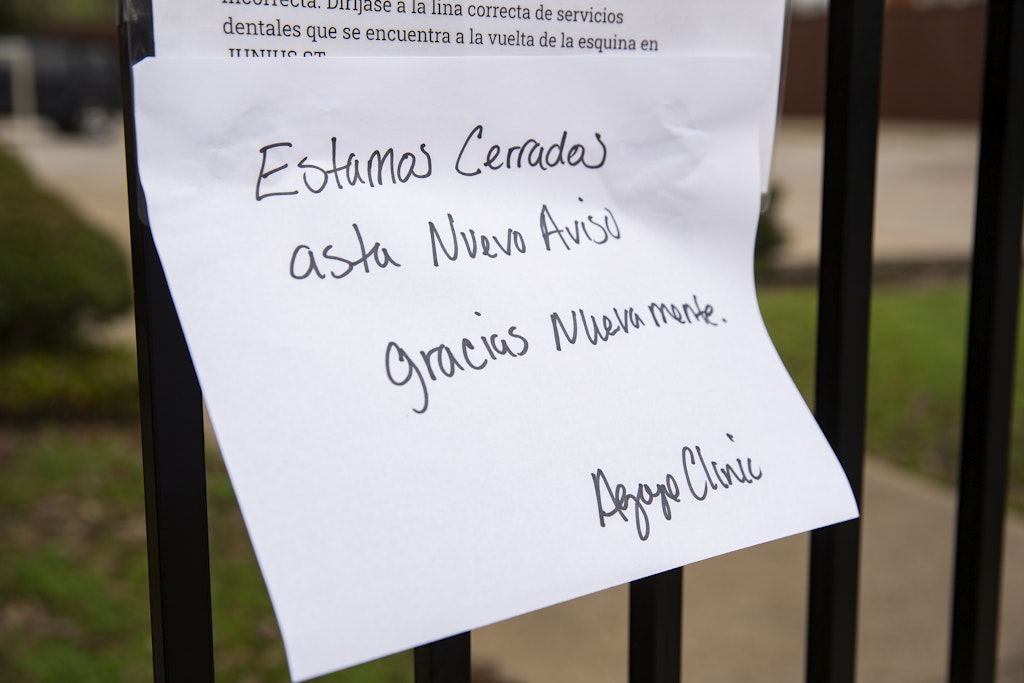
North Dallas Shared Ministries made a tough call Sunday evening: Its emergency aid center, where low-income families go every day to get food, clothing, medical help and other services, would be temporarily shutting down.
It was a “heart-wrenching” decision, said Judy Rorrie, the group’s executive director, but one that had to be made to reduce the risk of exposing its volunteer-led staff and clients to the coronavirus.
Dallas clinics and nonprofits that help vulnerable populations are finding themselves in a similar bind this week due to the rising number of coronavirus cases in Dallas and surrounding counties.
As elected officials urge the public to remain at home, some operations have closed or scaled back their services temporarily while others carry on at close-to-regular pace, determined to provide basic necessities at a time when they are needed most.
Closing the aid center at North Dallas Shared Ministries will impact some 40 to 50 families a day, Rorrie said. But because the many senior residents who make up a large part of the staff work closely with those seeking help, the move was necessary, Rorrie said.
“We wanted to stay open for rent assistance and food aid because the people need it,” Rorrie said. “But we were also overwhelmed by the fact that so many of our volunteers are more vulnerable to this virus, as we understand it.”
The nonprofit’s medical clinic is still operating by appointment only and patients are being screened at the door before being allowed inside. The group is also trying to make sure that its Friday FoodBasket program, which provides food to low-income seniors, will still be able to follow through on its mission, she added.
In West Dallas, community clinic Los Barrios Unidos, a nonprofit that connects low-income families with low-cost medical services, remained open this week.
Patients arriving are being screened by staff using a series of questions about symptoms and travel history, said Joleen Bagwell, director of marketing and development for Los Barrios Unidos.
If patients are sick, Bagwell added, they are kept separate from healthy patients as is the clinic’s usual routine.
“Our staff is carrying out its Hippocratic oath while trying to limit the spread of the disease,” Bagwell said.
The need to practice more precaution and the pressure on medical providers have forced other area efforts to slow down their normal operations or shut down altogether.
The Agape Clinic, a beacon for North Texas residents in need of free health care for nearly four decades, was temporarily closed this week and planned to reopen Monday.
The East Dallas clinic expects to serve 18,000 patients this year and offers free care without questions.
Dr. Barbara Baxter, Agape Clinic’s founder and medical director, said the clinic was “revamping its triage procedures” to protect staff and patients. The clinic lacked adequate supplies of equipment to handle people infected with coronavirus, Baxter said in a statement.
“We are all on a steep learning curve when it comes to dealing with this pandemic,” the physician said in a statement.
Across North Texas, public health care providers took precautions for themselves and the public as a historic public health crisis deepened. One side effect is that a free public health fair in Arlington scheduled for two weeks from now has been canceled.
In Vickery Meadow, home to many immigrant and refugee families, Northwest Community Center will be closed through April 3 due to coronavirus concerns, but The Healing Hands Ministries clinic housed inside will remain open.
The clinic stocked up on protective equipment like gowns and masks about two weeks ago, said Janna Gardner, the Healing Hands CEO and nurse who founded the clinic, to protect staff if they end up in contact with someone who may have coronavirus-like symptoms. It serves about 19,000 patients yearly.
Dallas Area Interfaith, a broad coalition of church-based groups, canceled a March 28 public health fair after providers began pulling out. The interfaith group held a series of well-attended fairs last year that drew a good amount of immigrant families.
“These are the people who are the most vulnerable,” said Socorro Perales, an organizer with the interfaith group. “This is critical.”
Other area groups are continuing their operations, albeit with a bit more precaution.
Homeless or housing-insecure youth were still welcomed by nonprofit After 8 to Educate at the Fannie C. Harris Youth Center in Fair Park, said Billy Lane, interim executive director and site manager for After 8.
Staff at the center expect to see about 15 to 20 youths a day or possibly more as spring break starts and as Dallas ISD keeps its schools closed indefinitely, Lane added.
Lane said any youth arriving and needing a place to stay were being advised to make sure they were washing their hands properly and disinfecting and sanitizing spaces they used.
“We wanted to make sure our operations did not change because we do serve youth who are housing insecure,” Lane said. “We do feel like it’s much safer for them to at least be in a place where they can be tended to if there is a health issue.”
obed.manuel@
dsolis@dallasnews.com
